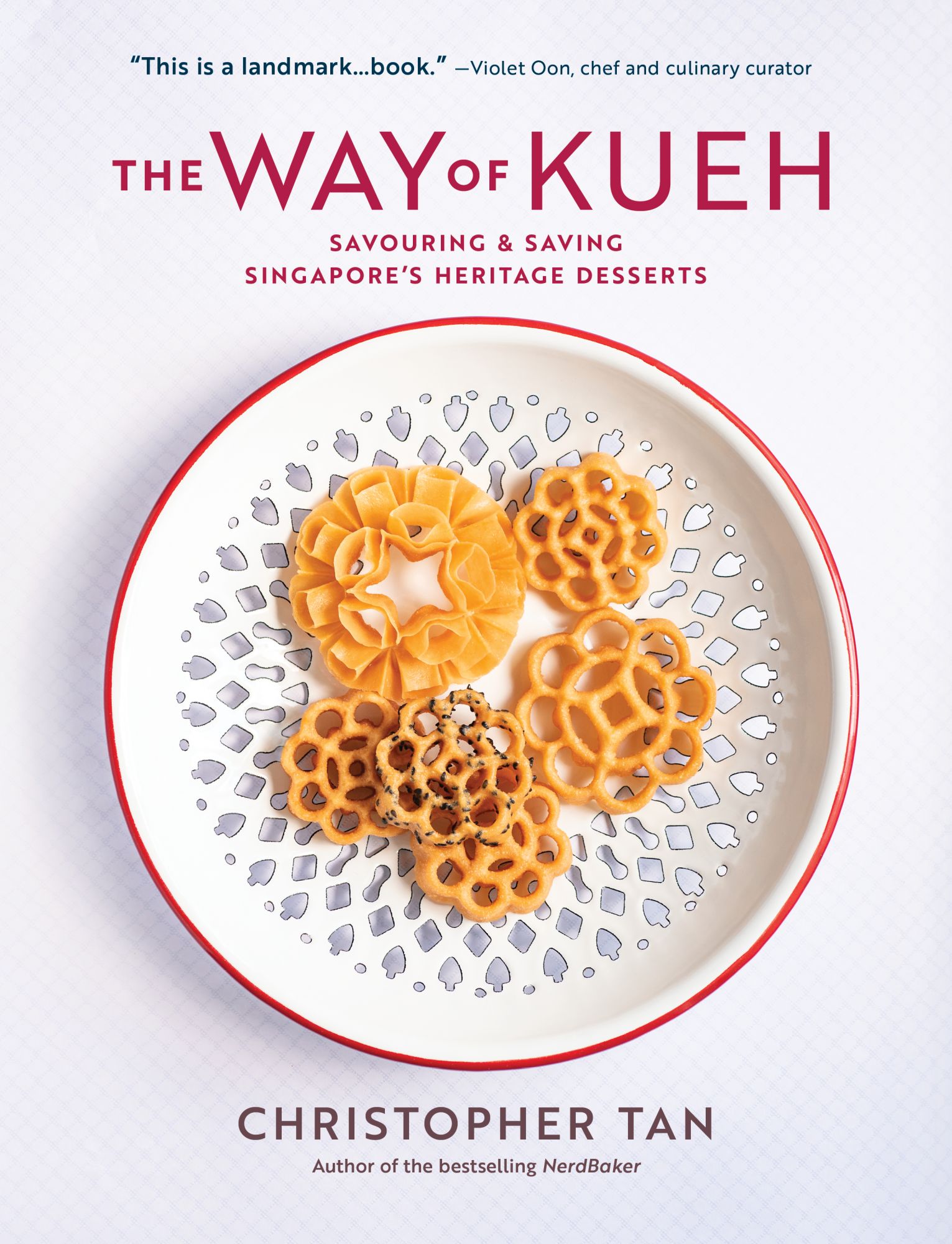Just in time for Christmas, The Way Of Kueh is a noteworthy ode to heritage cakes that is already a local non-fiction bestseller
The last couple of years have been good for kueh in Singapore. With young bakers opening dedicated stores across the island and restaurants dishing out elegant renditions of popular kueh, Singaporeans have rediscovered their love for these colourful traditional confections.
In that respect, Christopher Tan’s latest book The Way Of Kueh is as timely as the arrival of fruitcake at Christmas. The renewed enthusiasm for eating kueh has led to a burgeoning interest in making kueh. But the latter is often stymied by the lack of clear and tried-and-true resources, which is where The Way of Kueh comes in.
In it, Tan provides 98 detailed recipes for traditional Malay, Chinese, Eurasian and Peranakan kueh, each tried, tested and re-tested. A multi-hyphenate of the old school, the 40-something Tan is a food writer, food historian and culinary instructor, which means the book offers so much more than guidance on how to make kueh. It delves into the science and cultural history of kueh in Singapore, and unearths the regional connections between the likes of a Peranakan kueh bahalu and Eurasian bolu cocu, and sheds light on the craft and personal experiences of respected kueh-makers across Singapore.
(Related: The Future Of Singapore Cuisine Defined)

“One of the prime motivations that drove me to write The Way of Kueh was seeing how little attention our heritage kueh are receiving these days in comparison to the food trends driven by breathless reportage in social and print media,” said Tan. “In local bookstores, for every book on kueh, there are 10 books on Western sourdough bread, patisserie and decorated cakes. If our home cooks have time for those—and judging by the number of classes and workshops being offered locally for them, they do—then they certainly have time for kueh, which are so often unjustly stigmatised for being laborious.
“I felt I needed to remind myself and everyone how much value kueh possess as part of our national culinary heritage, how their making and meaning have always brought our families and communities together around the table.”




